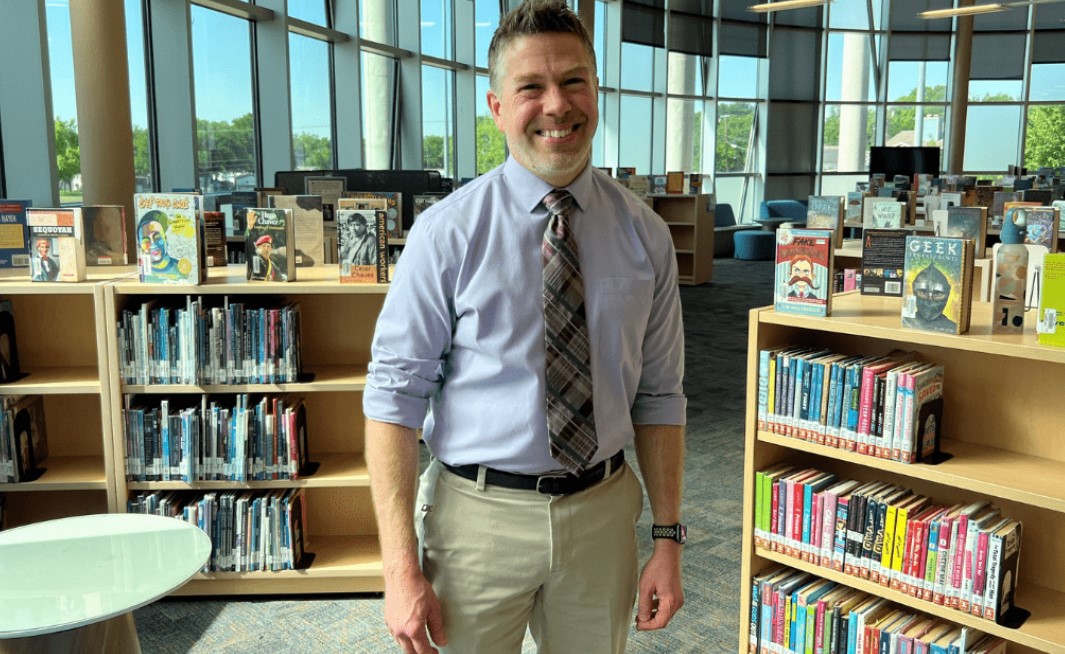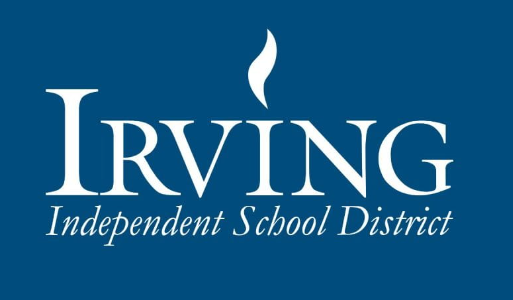Irving ISD is proud to recognize the tireless work of all our athletic trainers from across the district. We invite you to get to know the Head Athletic Trainers at Irving, MacArthur and Nimitz high schools!
Casey Elder – Irving High School
Casey Elder, the Head Athletic Trainer at Irving High School, has been with Irving ISD since 2014. He holds bachelor’s degrees in kinesiology from the University of North Texas and athletic training from the University of Texas at Arlington.
“As an athletic trainer, our job is to limit injuries,” Elder says. “When injuries do happen, we manage them by determining the severity and evaluating whether it is something that needs a referral to a higher level or if it is an injury that we can treat and rehabilitate in-house.”
One of the most effective ways to prevent injuries is by ensuring student-athletes have access to the proper equipment and that they are utilizing the proper technique when they are active.
“If I’m out at practice and I see improper technique going on, I’ll either reach out to their coach or the athlete directly,” Elder says. “This helps guide them in the right direction to prevent a potential injury from occurring.”
Athletic trainers have other duties and responsibilities that occur before the game is even played.
“We monitor if there’s ever lightning in the area, and we have a heat policy in place to ensure that students aren’t practicing when it’s too hot outside. This helps minimize the risk of heat stroke or dehydration. We also have a cold weather policy to keep our student-athletes safe,” Elder says.
For Elder, the most rewarding part about being an athletic trainer is being there for the students.
“I enjoy that we are the on-site health care professional for our students because a lot of them may not have access to one, or they may be uninsured or underinsured,” Elder says. “They may not have the ability to go to the hospital to seek out care if they have a simple ankle sprain or something like that. Being able to be the point person on campus that they can come to and answer questions to help guide them is super meaningful.”
While they may fly under the radar, athletic trainers like Elder, play an integral part in the success of our Irving ISD athletics department.
“This is a job that is kind of behind the scenes and may be taken for granted. But just know that the times you see us on the sidelines, that is maybe five percent of what our job actually entails,” says Elder. “If you see us on the sidelines instead of on the field, it is a good thing because it means that no one’s getting injured, and all of our preparation has paid off.”
Alyssa Williams – MacArthur
Alyssa Williams, the Head Athletic Trainer at MacArthur High School, has been with Irving ISD since 2020. She holds a master’s degree in athletic training from East Stroudsburg University.
“We have so many different roles, starting with injury prevention, nutrition and then ultimately being there for them when an injury does occur,” says Williams. “We essentially become their physical therapist since many of our kids do not have insurance. We are there through it all!”
Williams’ favorite part of her job is getting to see athletes come back after long-term injuries.
“When our athletes tear their ACLs and they are out for nine months, they get so excited when they finally return for their first game,” says Williams. “I get so excited for them. They become my favorite players!”
Williams played rugby while in college, which is when she was first exposed to having access to an athletic trainer. It was then she became interested in figuring out how to help people and decided to pursue a career in the industry. While she has been an athletic trainer for several years, she is always looking forward to growing and becoming even better.
“You’re never going to be fully prepared,” says Williams. “Something new always comes along, and you will inevitably think about how you would have done something differently after the fact. But you just have to take what you have learned throughout the years and just try to apply it each time.“
Jessa Salinas – Nimitz High School
Jessa Salinas, Head Athletic Trainer at Nimitz High School, has been in Irving ISD since 2021. She holds a bachelor’s degree in kinesiology from the University of North Texas and a master’s degree in athletic training from the University of Texas at Arlington.
While a student at UTA, Salinas completed her clinical rotation at Nimitz. Upon graduating, she learned that a position opened up, and she started her career as an assistant athletic trainer. She has since moved into the role of the head athletic trainer.
“When I found out that I could be in the world of athletics and do medicine, it was kind of a no-brainer,” says Williams. “Getting to be on the sidelines and still keep up with innovations in sports medicine and technology is perfect!”
Her passion for this is evident as she embraces all aspects of what it means to be an athletic trainer.
“We are physical therapists. We are EMTs. It is just kind of all rolled up into one,” says Salinas. “We get to see the injury usually from the beginning when it happens, all the way through to the end when they get cleared from rehab and get to go back onto the field.”
Salinas credits the relationships she forms with her student-athletes with helping her make more informed decisions as it pertains to continuing to play.
“An advantage of being able to be in the school full time is getting to know the kids. Around 50% of the time I have to make split decisions, whether it’s an emergency that is serious and the student needs to get to the hospital right away, or even the little stuff where it may require attention, but because I know the student and I know where they’re at mentally and physically, it allows me to do some tests and make a much more carefully thought-out decision.”
For Salinas, the best thing about being an athletic trainer is the camaraderie.
“Being able to collaborate with our team doctors, other athletic trainers and people in the medical field allows us to improve the current systems we have in place or allows us to find new ways to minimize the risk of injury,” says Salinas.



